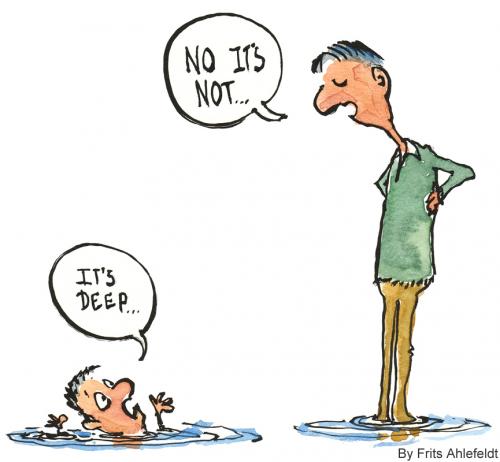Just writing up some research conducted with a group of practitioners..here's a sneak peak!
The application of family therapy in
developmental disabilities is limited. Harris (1984a) was arguably the first to
publish case material, focusing on difficulties that might emerge when the
intergenerational structure of the family is disrupted. Others have explored
the significant difficulties families can experience negotiating lifecycle
transitions (Birch, 1986, Goldberg et al. 1995), while emphasising the need to
recognise familial strengths and narratives (Coles, 2001,Goddard et al, 2000,
Gray, 2001). More recently, Rhodes
(2003) has integrated the behavioural and systemic models, in order to expand
mediation analysis and intervention. Baum and Lynggaard (2006) also advocate
strongly for family therapy, providing evidence for the beginnings of wider
acceptance in the field.
The aim of this study is to explore the
effects of systemic consultation (Rhodes et al., 2011), a form of case review
built on the principles of systemic family therapy. Systemic consultation was
designed to introduce the family therapy to clinicians trained in Applied
Behaviour Analysis. In particular, the goal was to support them to become more
aware of the patterns of interactions and relationships across multiple
settings that might restrain effective behavioural intervention. Consultations
are informed by systemic family therapy, first developed by Selvini-Palazzoli
et al.(1978). This model considers the referred behaviour as one step in a
sequence of interactions that can become stuck or rigid in the face of
stressors or lifecycle transitions. Patterns can escalate, with relationship
become increasingly fraught over time. While this serves as the primary model,
issues relating to family and organisational structure are considered (Munuchin
et al.,1978) and an emphasis is also placed on the amplification of strengths
(De Shazer, 1985).
In systemic consultation a clinician
presents a case to between three and six members of a reflecting team over a
90-minute period (for a detailed description see Rhodes et al., 2011). The team
is made up of peers trained in systemic theory and interviewing, including one
experienced family therapist. The case is presented slowly, in a structured
format that allows for careful thinking based on a gradual appraisal of
information. The presentation is augmented by a sociogram drawn on a large
board, with relevant facts being noted visually as the ‘story’ unfolds. The
team asks questions throughout the presentation, rather than engaging in
anecdotes, statements or advice-giving. After a 90 minute period the team
discusses the case between themselves while the clinician sits in the same room
listening in (Andersen, 1995).This gradual process of inquiry is designed to
allow for the introduction of new perspectives arising through reciprocal
conversation with the clinician, rather than didactic case presentations.
Method
This study was part
of a larger project aimed to develop and refine the process of systemic
consultation using Participatory Action Research (PAR) (McIntyre, 2008). PAR involves the
collaborative participation of stakeholders in the testing and development of
practices. In the larger project both systemic consultation team members and
visiting clinicians were interviewed about their experience of systemic
consultation, with results being regularly fed back into practice. The aspect
of the study being reported here explores the experience of systemic consultation by visiting
clinicians.
Participants
Ten visiting
clinicians were invited to participate using a purposive sampling approach
(Cohen et al., 2000). Clinicians were primarily employed in behaviour
intervention roles, from a variety of disciplines, including psychology,
special education and rehabilitation. All participation was voluntary and
access to the systemic consultation was not predicated on agreement to
participate in the research. All cases
presented were highly complex in nature, involving challenging behaviour, such
as physical aggression and property destruction, and involving acute problems
such as neglect, violence and abuse. The majority of cases consisted of
adolescents or adults with developmental disabilities living in residential
settings, with a minority residing in the family home.
Summary of Findings
Prior to systemic consultations all clinicians described relying heavily
on Applied Behaviour Analysis, with some more experienced staff also thinking
in more relational terms. Cases were chosen because they had reached an
impasse, where these skills were not sufficient to bring about change.
Consultations had a variety of effects, including a focus on
relationally-informed conceptualisations of client’s needs, the development of
a facilitative position when working with staff and some skill development
informed by systemic interviewing. These descriptions suggest that staff had
been able to re-evaluate their cases, with consultations opening up new ways of
working. It is important to note, however, that novice clinicians described
managerial barriers to change and were more likely to feel overwhelmed without
ongoing support.
Discussion
One of the primary
effects of systemic consultations was a shift in emphasis, enabling clinicians
to develop a greater empathy for the relational needs of clients. Consultations
allowed clinicians to interpret the meaning of challenging behaviour in
interpersonal terms, as representing a need for reassurance and connection,
needs that might relate to insecurity resulting from childhood trauma, to
lifecycle transitions, or as part of what was becoming a negative cycle of interactions
with staff. Applied Behaviour Analysis also interprets the meaning of
behaviour, but does so in communicative rather than exclusively relational
terms. From this perspective behaviour can serve a variety of important needs: for
tangible reinforcement, for self-stimulation or self-regulation, to escape from
an unpleasant situation or for the gaining of attention (Carret al., 1994). Some distinct
differences can be drawn, however, between the types of relational needs
described by clinicians in this study and these more overt conditioned
responses. In particular the somewhat
static attention-maintaining category can to be contrasted with the more
dynamic construct of attachment, an internal working model that has it’s roots
in an individual’s interpersonal history (Bowlby, 1969).
Findings from this study also have
implications for the nature of the relationship between clinicians and
professional carers. Clinicians
described a change in the way they related to staff, based on a review of their
role, taking a step down from an expert to facilitator position. In family therapy terms this represents a shift from a
position of solitary observer, external to the system observed (Hoffman, 1993),
to one involving the social negotiation of meaning from within (Anderson &
Goolishian, 1988). These findings are supported by the work of Smyly (2006),
who is critical of the expert role of clinicians consulting to group homes,
emphasising the need for reflective conversations, ones that help staff
consider alternative ways of understanding challenging behaviour rather than
being told directly of the results of functional analyses. These types of conversations
between clinician and staff mirror what Tomm (1988) calls ‘interventive interviewing,’ a method for introducing new ideas
while considering power in relationships. Expert or ‘top-down’ advice is seen
to promote ‘stuckness’ or homeostasis , while a more facilitative role is more
likely to create opportunities for change.
One of the limitations of systemic consultation seems to be the potential
moderating effect of clinical experience. Novice therapists were found to feel
more overwhelmed after consultations, given the implied need for greater
engagement with a living system, as opposed to the relative predictability of
Applied Behaviour Analysis. Knowledge management theorist Snowden (2000) proposes
that complex systems can only be understood in retrospect. Decision-making in these
instances can only be tentative, based on an engagement with patterns as they
emerge rather than planned and operationalised in advance. Family therapists
Sadler and Hulgus (1989) describe this phenomenon as follows:
We reserve
"explanation" for the description of causal processes, for example,
those of physiology or chemistry. We use "understanding" to describe
human meanings and not causal processes.
Novice clinicians may require ongoing support if they are to learn to
work in this way, in the form of follow-up sessions or through training in
systemic theory or interventive interviewing.
Another limitation of
systemic consultation is the potential organisational barriers to change when
clinicians chose to work differently. This is understandable given the
increasing demand for accountability within health and human services, where
hierarchical managerialism and technological regulation are prevalent (Burton
and van den Broek, 2009). At a minimum it might be useful to invite managers to
participate in consultations, to foster greater understanding between them and
their clinical staff. There will be situations, however, where these types of
barriers cannot be negotiated through systemic consultation.
Despite some
promising findings research into systemic consultation is in its infancy.
Future studies may benefit from the inclusion of a comparison group, consisting
of clinicians receiving standard supervision. Social network analysis may also
provide a quantitative method for evaluating outcomes (Freeman, 2006). In
addition, the heterogeneity of cases was limited in this study, with the
majority to living in group home settings. Further research is required to
explore the applicability of this method for clinicians working with children
and adults living at home as well as those living is less supported forms of
accommodation.






















 62 Comments
62 Comments

